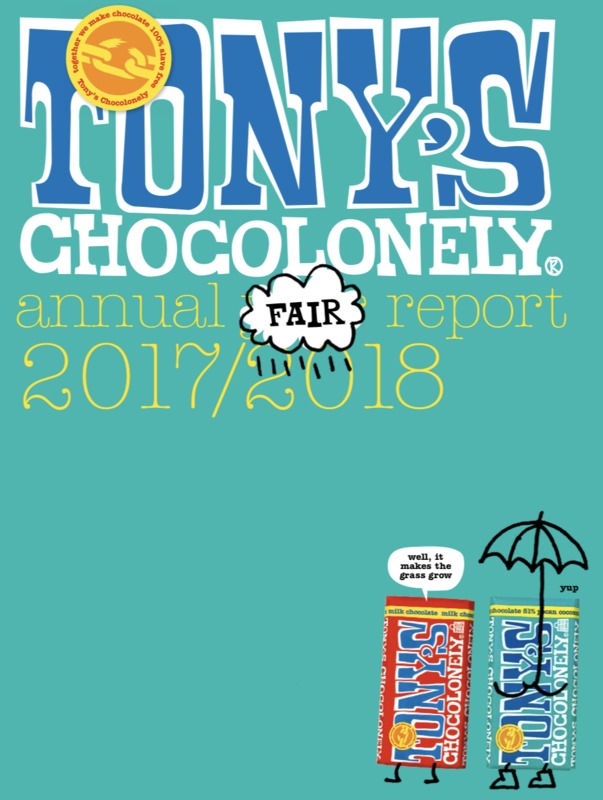What is Being Done to Change the Industry, if Anything
A small chocolate company, big in the Netherlands, Tony’s Chocolonely, sole mission is to become slave free and have the industry follow in their footsteps. They have chosen to continue sourcing their chocolate from West Africa in the same way big chocolate companies source their chocolate to prove that it can be done. In their Annual Fair Report, they explain their progress in becoming slave free and the setbacks they have faced, as well as, their plans for the future. Tony’s Chocolonely follows five principles to achieve slave free chocolate. These five principles include: traceable cocoa beans, a higher price, improved productivity and less dependency on cocoa, long-term solutions, and investing in strong farmers and professional farming cooperatives. These five principles have allowed Tony Chocolonely’s company to become mostly slave free despite some setbacks. This report mentions that in the 2017-2018 fiscal year the price of cocoa fell by over 40%. Tony Chocolonely’s company pays another fee on top of the Fair-Trade fee to their customers. To help offset the price reduction they doubled their annual fee-paying farmers in Ivory Coast 47% on top of the regular price. Additionally, due to the lower cost of the cocoa beans they were able to reduce their retail price of the chocolate bars by 1.5%. Big chocolate companies did not reduce their prices or pay the farmers more for the beans adding to a large portion of additional profits for them. Although Tony’s Chocolonely is making big strides in becoming 100% slave free, there methods may be not as simple to enact on a larger scale. However, they are making steps in the right directions to make real change within the industry. The steps Tony’s Chocolonely is making is very different from that of larger chocolate companies. The main effort big chocolate companies are trying to make is by buying cocoa from “certified” plantations such as Fairtrade and Rainforest Alliance (Whoriskey and Siegel). However, Fairtrade only adds a “premium which is an additional sum of money paid over the regular price” (Fairtrade Foundation). The certification of plantations does not guarantee that the cocoa being produced is child or slave labor free, especially since they are only “required to visit fewer than 10 percent of cocoa farms” (Whoriskey and Siegel). Furthermore, companies “acknowledge that certifications have been inadequate to the child labor challenge” (Whoriskey and Siegel). This helps to illustrate the big chocolate companies are doing the bare minimum when it comes to improving the conditions for cocoa laborers in the plantations. Although they are making steps to increase the amount of cocoa they are buying from certified farms, this alone will not fix the injustice in the industry. Furthermore, most of the big chocolate companies do not even have 100% of their cocoa coming from certified farms or even traceable. This goes to show their lack of action especially since they recognized the problem of child labor in 2001 and eighteen years later not much has changed. Until big chocolate companies recognize the root of the problem (poverty, living wages for farmers, and lack of education) and solve the problem starting at the cause, the cycle will never end. If they want to create real change, they need to follow a plan similar to that of Tony’s Chocolonely.

